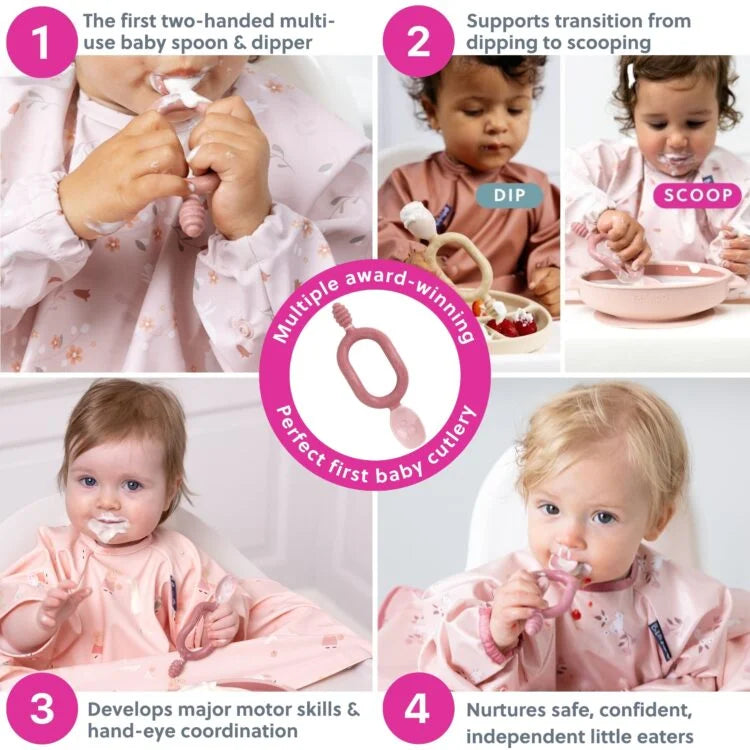Bibado
Bibado - Dippit Baby Spoon 2 Pack
Bibado - Dippit Baby Spoon 2 Pack
Couldn't load pickup availability
We created the world’s first two-handed weaning spoon to encourage babies to take an active role in feeding. The innovative Dippit allows parents to preload the spoon and offer it to their child, who instinctively reaches for it with both hands to bring it into their midline and up to their mouth. This naturally helps to develop a range of motor control skills, including grasping, gripping, hand-eye coordination, wrist control and elbow flexion. This is all excellent prep for follow-on cutlery and provides a solid foundation for later skills like writing.
The dual-ended design offers multiple benefits. In early weaning, the honey-drizzler dipper end is designed to easily pick up and retain viscous foods like yoghurt, porridge, purees and mashed food. Later, when wrist control begins to develop, babies can transition to the spoon to practice and master scooping.
Encourages developing babies to take an active role in feeding, which fuels confidence – a key ingredient for progression
The unique short two-handled design makes the Dippit perfect for navigating food from plate to mouth at a point where wrist control is yet to emerge and mature. Ideal first baby cutlery.
Textured dipper end stimulates tongue lateralisation (side-to-side tongue movement). This is instrumental for learning to move food around the mouth and safe swallowing
The world’s first two-handed baby weaning spoon designed for parental assistance and independent feeding. Nurtures self-feeding and facilitates the seamless transition from dipping to scooping
Curved ergonomic anti-slip handles are raised on a flat surface making it easy for little fingers to get underneath and pick up
Anti-gag neck prevents the Dippit from hitting the back of the mouth and overstimulating the gag reflex, which can lead to negative associations with mealtimes
Share











